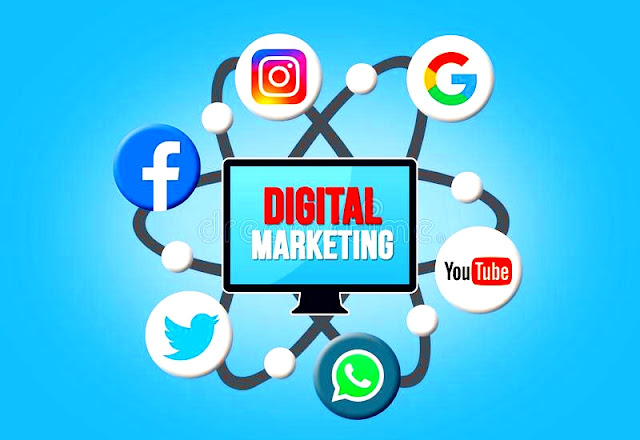What is blogging and how does it work
Blogging
A blog, sometimes known as a "weblog," is an online journal or informational website that is published on a regular basis by an individual, group, or organisation. It is written in an informal or conversational tone and offers facts in reverse chronological order.
A blog is a smaller website or page on a larger website. It typically includes articles with supporting images or videos that are written in a conversational tone. It is no surprise that blogs have gained a lot of popularity as they are a fun and adaptable tool for people to express themselves and connect with others.
A conversation or informational website published on the World Wide Web that consists of brief, frequently casual diary-style text updates is known as a blog (a contraction of "weblog") (posts). Usually, posts are shown in reverse chronological order, with the most recent entry at the top of the page.
Prior to the development of the internet, people communicated via networks and distributed content via message boards, also referred to as "newsgroups." They made it possible for people to communicate and exchange information.
History of blog
In the middle of the 1990s, online journals and diaries gave way to blogs. At that time, internet users already had personal websites that they updated frequently with information about their daily lives, opinions, and social commentary.
The phrase "web log" was originally used in the late 1990s; it then evolved into "weblog," "we blog," and finally "blog."
Numerous tools began to emerge as a result of the increase in these web pages, making it simpler for users to develop their own personal blogs and online diaries. These applications helped make blogging more commonplace and made the technology usable by non-technical users.
The introduction and expansion of blogs in the late 1990s corresponded with the appearance of web publishing tools that made it easier for non-technical users to post content even if they had little background in HTML or computer programming. Early Web users tended to be hackers and computer enthusiasts as publishing information on the Web previously needed understanding of technologies like HTML and File Transfer Protocol. The bulk of websites in the 2010s are Web 2.0 interactive sites that let users post comments online. This interaction sets them apart from other static websites. [2] In this regard, blogging is comparable to a particular type of social networking service. Bloggers do, in fact, more than just create stuff to post on their blogs.
How do start blog
1.Select a blog hosting service.
2.platform with scalable template options.
3.Choose a hosting platform.
4.Find the ideal niche.
5.Choose a domain and blog name.
6.Create and set up your blog.
7.Ideas of blog topics.
8.Publish your first blog entry.
9.Make an editorial schedule.
10. Done
Blog start with no money
Here are the best free blogging sites you can use to start your own blog today:
Wix (www.wix.com)
WordPress (www.wordpress.org)
LinkedIn (www.linkedin.com)
Weebly (www.weebly.com)
Medium (www.medium.com)
Ghost (www.ghost.org)
Blogger (www.blogger.com)
Tumblr (www.tumblr.com)
What is the purpose of blog
There are numerous good reasons to establish a blog for personal use, but there are very few good ones for blogging for businesses. The goal of blogging for company, projects, or anything else that could make you money is to rank your website higher in Google SERPs, also known as to raise your visibility.
As a business, you depend on customers to continue using and purchasing your goods and services. As a startup company, you depend on blogging to help you reach and engage potential customers. In contrast to blogging, which makes your website searchable and competitive, your website would remain invisible without blogging.
So, connecting you to the appropriate audience is the fundamental goal of a blog. Increasing traffic and sending quality leads is another.
Your website's chances of being found and visited by your target audience increase with the frequency and quality of your blog postings. This proves that a blog is a useful tool for generating leads. By including an effective call to action (CTA) in your content, you can turn website visitors into qualified leads. A blog enables you to establish your expertise in a certain niche and grow your brand.
Utilizing your expertise in a certain sector to write interesting and educational pieces fosters trust among readers. Excellent blogging gives your company greater credibility, which is crucial if your brand is still developing and relatively unheard of. It simultaneously ensures internet visibility and authority within the specialty.
Businesses discovered a productive technique to raise customer satisfaction levels through blogging. Blogs help businesses keep their customers and clients informed. Additionally, your blog's readership increases the recognition and credibility of your business.
Personal and specialty bloggers saw an opportunity to connect with more people who were interested in particular subjects. Through a blog, readers may leave comments and engage with you or your brand, which aids in building a network of devoted fans.
Blogs are useful in the following ways:
- Helps to build your brand
- Helps connect you to the right audience (people looking for exactly what you are offering)
- Boost website and blog traffic from SEO
- Help get quality leads and drive them to your website
- You can share information in an affordable way
How do student blogging challenges 💯
For more information - Online earning platform






Comments
Post a Comment